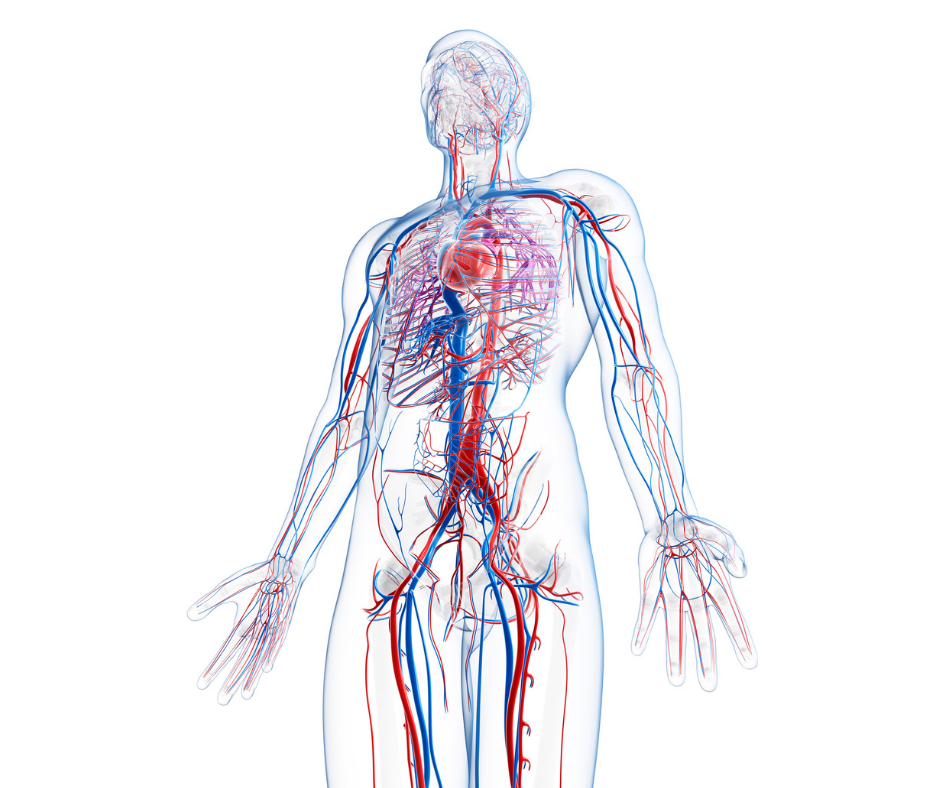CTVS has been the “go-to” expert for vascular disease in Central Texas for more than 65 years.
Vascular disease and vascular health are often unfamiliar to some people.
What part of the body or system do they refer to? Is it the same as cardiovascular health? What type of doctor treats vascular conditions?
The vascular system, also known as the circulatory system, is an intricate web of blood vessels, veins, and arteries that carry blood to your heart and transport it throughout the body. (The cardiovascular system includes the heart muscle and its immediately surrounding veins and vessels.)
Your vascular health could be in real jeopardy if any of these veins, vessels, or arteries become clogged or are unable to function properly to supply the body and heart with blood.
This is commonly known as vascular disease.
What is vascular disease?
Vascular disease occurs when blockages in veins, vessels and arteries obstruct the flow of blood to the heart, arms, or legs. These blockages are typically attributed to a buildup of plaque and cholesterol over time. According to the American Heart Association, more than half of all U.S. adults had some form of cardiovascular disease in 2019. If left untreated, vascular disease can lead to serious consequences like stroke and heart attack.
What are the most commonly searched vascular conditions?
In addition to general vascular disease, other vascular conditions that are frequently searched for online include:
- Abdominal Aortic Aneurysm (AAA): when a portion of the aorta that supplies blood to the lower half of the body becomes weakened and enlarged
- Complex Venous Disease or Chronic Venous Insufficiency: when valves in the veins don’t work, usually in the legs, causing blood to pool and results in painful varicose or spider veins
- Aortic Occlusive Disease: a blockage of the aorta or the iliac arteries in the belly area that provide blood to the legs and pelvic organs
- Peripheral Artery Disease (PAD): narrowing of blood vessels or reduced or blocked blood flow to your extremities, typically the legs
What does a vascular surgeon do?
A vascular surgeon specializes in the treatment of the vascular system (although not the heart itself) and circulatory disorders, including vascular disease. Our team of CTVS board-certified vascular surgeons are skilled in performing both open and minimally-invasive surgical treatment options. They also oversee state-of-the-art testing and imaging to assess the severity of cases.
What are the most common vascular tests?
CTVS offers the following state-of-the-art diagnostic tests and imaging to evaluate your vascular needs. These are conveniently performed either in our in-office Vascular Lab or one of our Vascular Intervention Suites (VIS):
- Carotid Duplex: arteries of the neck are examined with ultrasound and Doppler to check for blockage
- Venous Duplex: veins of the arms and/or legs are examined with ultrasound and Doppler in order to detect blood clots or weakened valves in the veins
- Angiogram: a contrast dye-based X-ray procedure using a thin, flexible catheter to help diagnose and treat arterial or venous disease
CTVS’ board-certified vascular surgeons are:
- Phillip Church
- John Politz
- Jeffrey Jobe
- Stephen Settle
- Joe Wells
- Scott Seidel
- Jeffrey Apple
- Mazin Foteh
- Bradley Boone
- David Nation
- Ryan Turley
- Taylor Smith
For questions about our vascular services, please visit us at ctvstexas.com or call (512) 459-8753 to schedule an appointment with one of our specialists.
Don’t forget to follow us on Facebook and Twitter and check our blog for regular updates.

